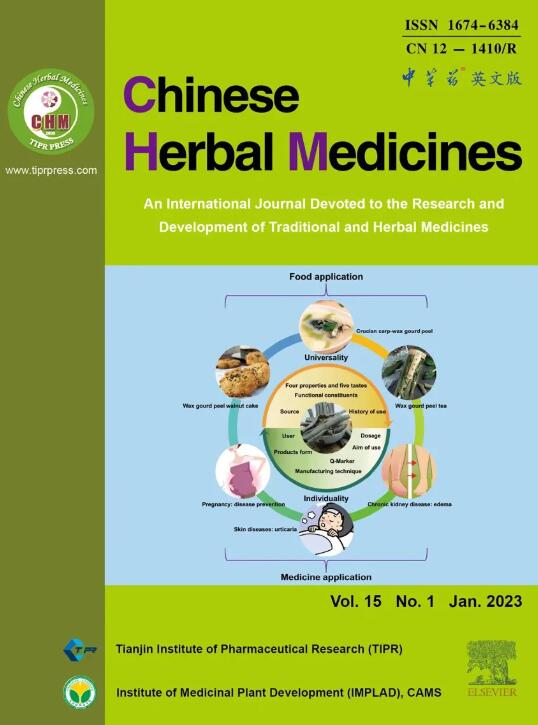Therapeutic potentials of natural products for post-traumatic stress disorder: A focus on epigenetics
IF 8.9
4区 医学
Q1 CHEMISTRY, MEDICINAL
引用次数: 0
Abstract
Post-traumatic stress disorder (PTSD) is a relatively common but complex mental illness with a range of diverse risk factors. Typical symptoms include the re-experience or avoidance of traumatic events, cognitive impairment, and hypervigilance. While the exact pathogenesis of PTSD is unclear, many studies indicate that epigenetic regulation plays a key role in its development. Specifically, numerous studies have indicated that the levels of histone acetylation and methylation, DNA methylation, and noncoding RNA are altered in PTSD patients. Further to this, natural products have been found to achieve epigenetic regulation of PTSD by regulating the expression of epigenetic enzymes, long noncoding RNA (lncRNA), and miRNA, thereby playing a role in improving PTSD symptoms. To date, however, no epigenetic regulation related drugs have been used in the treatment of PTSD. Furthermore, while natural products that can epigenetically regulate PTSD have received increasing levels of attention, there have not yet been any systematic reports on the topic. Here, we summarized the roles and mechanisms of natural products in the epigenetic regulation of PTSD, providing a novel and unique perspective that will help to guide the development and application of new PTSD treatments.
天然产品治疗创伤后应激障碍的潜力:关注表观遗传学
创伤后应激障碍(PTSD)是一种相对常见但复杂的精神疾病,具有一系列不同的危险因素。典型症状包括对创伤性事件的重新体验或回避、认知障碍和高度警惕。虽然PTSD的确切发病机制尚不清楚,但许多研究表明表观遗传调控在其发展中起着关键作用。具体而言,大量研究表明,PTSD患者的组蛋白乙酰化和甲基化、DNA甲基化和非编码RNA水平发生了改变。此外,还发现天然产物通过调节表观遗传酶、长链非编码RNA (lncRNA)和miRNA的表达,实现PTSD的表观遗传调控,从而起到改善PTSD症状的作用。然而,到目前为止,还没有表观遗传调控相关的药物被用于治疗PTSD。此外,虽然能够从表观遗传上调节PTSD的天然产物受到越来越多的关注,但尚未有任何关于该主题的系统报告。本文综述了天然产物在PTSD表观遗传调控中的作用和机制,为指导PTSD新疗法的开发和应用提供了一个新的、独特的视角。
本文章由计算机程序翻译,如有差异,请以英文原文为准。
求助全文
约1分钟内获得全文
求助全文
来源期刊

Chinese Herbal Medicines
CHEMISTRY, MEDICINAL-
CiteScore
4.40
自引率
5.30%
发文量
629
审稿时长
10 weeks
期刊介绍:
Chinese Herbal Medicines is intended to disseminate the latest developments and research progress in traditional and herbal medical sciences to researchers, practitioners, academics and administrators worldwide in the field of traditional and herbal medicines. The journal's international coverage ensures that research and progress from all regions of the world are widely included.
CHM is a core journal of Chinese science and technology. The journal entered into the ESCI database in 2017, and then was included in PMC, Scopus and other important international search systems. In 2019, CHM was successfully selected for the “China Science and Technology Journal Excellence Action Plan” project, which has markedly improved its international influence and industry popularity. CHM obtained the first impact factor of 3.8 in Journal Citation Reports (JCR) in 2023.
 求助内容:
求助内容: 应助结果提醒方式:
应助结果提醒方式:


